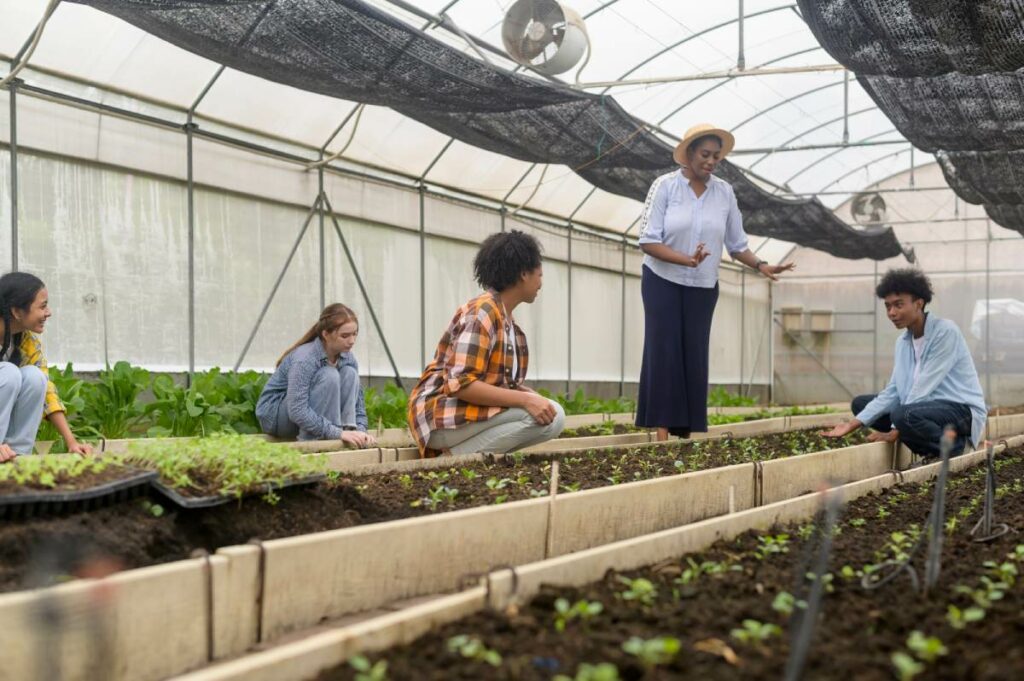It is estimated that the world population will reach 9.7 billion by 2050, meaning that we will need to produce more food in the next 30 years than we have combined in the past 10,000 years. We need educated and skilled farmers with the latest agricultural technologies and practices to meet this demand. Unfortunately, many universities are cutting their agriculture programs due to budget constraints, so there is a critical need for more agricultural education.

Agricultural Production Must Increase To Meet The Demands Of A Growing Population
As the world population continues to grow, so too makes the demand for food. It is estimated that the world population will reach 9.7 billion by 2050, meaning that we will need to produce more food in the next 30 years than we have combined in the past 10,000 years. This increase in demand can only be met through increased agricultural production, which means that we need educated and skilled farmers with the latest farming technologies and practices to keep up with the increased demand for food.
In addition to producing more food, we also need to have healthier food. With the rise of chronic diseases such as obesity and diabetes, it is more important than ever to ensure that our food is nutritious and safe. This can only be done through sound agricultural practices.
There Is A Critical Shortage Of Qualified Workers In The Agricultural Industry
Unfortunately, many universities are cutting their agriculture programs due to budget constraints, so there is a critical need for more agricultural education. The lack of qualified workers is already impacting the agricultural industry; for example, there is a shortage of trained farm managers in Australia. This shortage is expected to worsen as older farmers retire and younger people are not interested in or qualified for these positions.
Agricultural Education Provides Students With A Unique Set Of Skills And Knowledge
Agricultural education provides students with unique skills and knowledge that can be applied to other industries. For example, students who study agriculture learn about animal husbandry, crop science, soil science, and agronomy—skills that can be transferred to other industries such as veterinary science, horticulture, and environmental conservation. In addition, many of the technologies used in agriculture (e.g., GPS systems and drones) are also used in other industries (e.g., surveying and mining). As such, they are studying agriculture provides students with transferable skills and knowledge that can be applied to various occupations.
Agriculture Is An Important Contributor To The Economy And Society
Agriculture is essential to the economy and society. In Australia, agriculture accounts for 3% of GDP and employs 1% of the workforce; in New Zealand, those figures are 5% and 2%, respectively. In both countries, farming families make up a significant proportion of rural communities; indeed, farming families account for 30% of all rural households in Australia.
Agriculture also plays a vital role in food security; for example, Australian farms produce enough food to feed 60 million people, equivalent to Australia’s current population plus its export customers. Lastly, agriculture contributes to environmental sustainability; for example, Australian farmers have reduced their reliance on chemical pesticides by using biological controls such as beneficial insects.
Agricultural Education Has Many Benefits For Individuals And Society As A Whole
Agricultural education has many benefits for individuals and society as a whole. As described above, agricultural education provides students with unique skills and knowledge that can be applied to other industries; furthermore, it is an essential contributor to both the economy and society. In addition, agricultural education has many personal benefits; for example, it teaches students about goal setting, time management, teamwork, and communication. All of these skills are essential for success in any career.
Why Aren’t Universities Offering More Agricultural Courses?
The primary reason universities are not offering more agricultural courses is budget constraints. Many universities face severe budget cuts, leading to the cancellation or reduction of many programs, including agriculture.
In addition, there is a general trend toward defunding public universities in favor of private institutions. This trend is particularly pronounced in the United States, where public universities have struggled to compete with private institutions regarding funding and resources.
Final Thoughts
We are seeing a growing need for more agricultural education in universities. Agricultural production must increase to meet the demands of a growing population, but there is currently a critical shortage of qualified workers in the farming industry. Agricultural education provides students with unique skills and knowledge that can be applied to other sectors; furthermore, it is an essential contributor to both the economy and society. Finally, agricultural education has many personal benefits; it teaches students about goal setting, time management, teamwork, and communication – all essential skills for success in any career.



